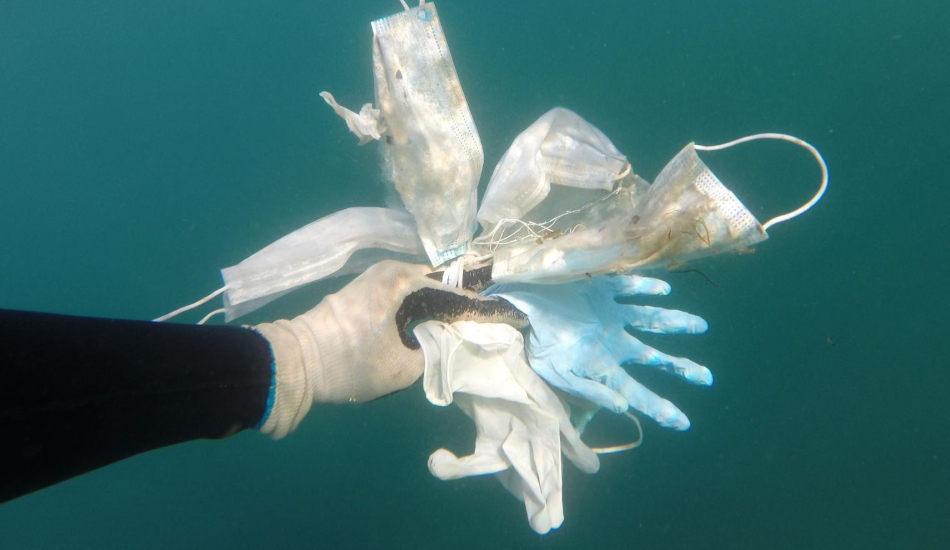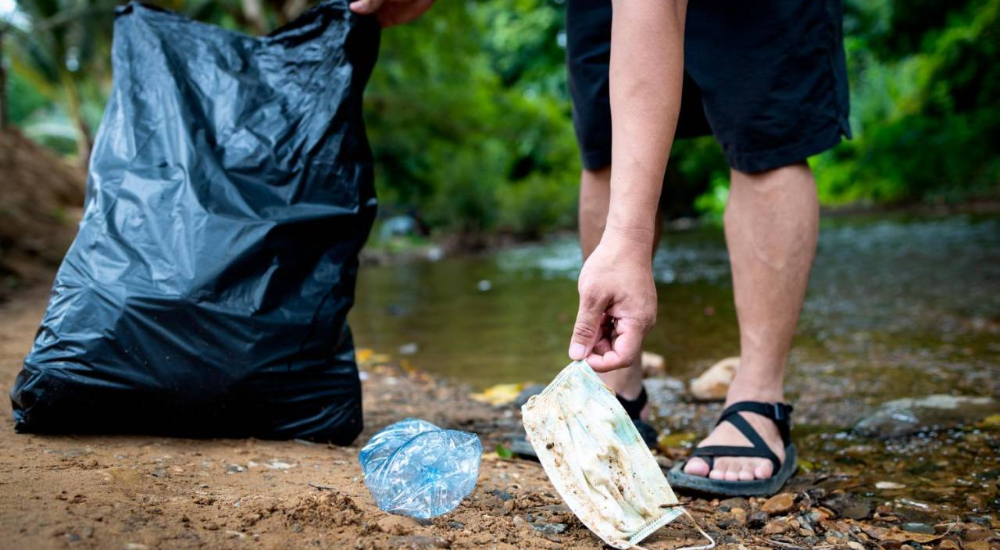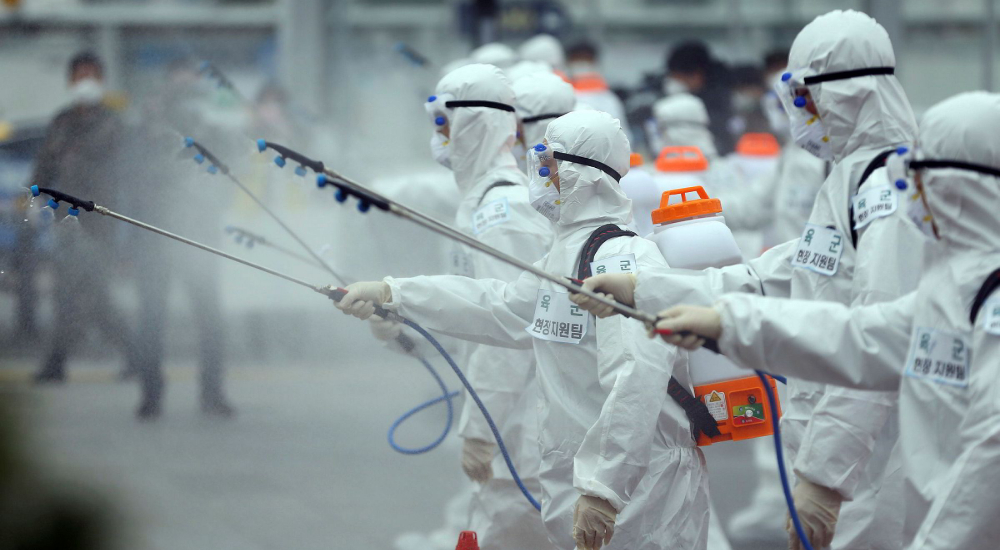The COVID-19 pandemic has not only dramatically affected the lives of many people worldwide but also impacted the environment in negative ways, including marine ecosystems and their conservation and management.
Although the stringent measures taken to control the spread of the virus, like limitations on movement, have also generated some short-term positive effects on the environment – such as reduced air pollution, we’ll be exploring the issues that still require immediate action.
Increase of Biomedical Waste Generation
A surge in COVID-19 patients generated a rise in medical waste globally, which is a major threat to public health and the environment. India, for example, which is currently the second worst-hit country by the pandemic, after the United States, generated 18,006 tonnes of biomedical waste in the last four months. In Wuhan, China, where the COVID-19 first emerged, officials didn’t just need to build new hospitals; they had to construct a new medical waste plant and deploy dozens of mobile waste treatment facilities.
Waste generated from hospitals worldwide should be managed properly to reduce further infection and environmental pollution. Medical waste coming from healthcare facilities treating coronavirus patients is required to be handled differently than waste coming from facilities without coronavirus patients, according to the CDC. However, people with mild symptoms of COVID-19 are mainly self-isolated and generate infectious waste, which is being introduced to the urban waste stream.
Littered Masks and Gloves
To protect from the viral infection, people around the globe are using face masks, hand gloves, and other safety equipment. Since the outbreak of COVID-19, the production and use of plastic-based personal protective equipment (PPE) have increased worldwide. Due to a lack of knowledge about infectious waste management, most people dump PPEs in open places.
As much as 13 million tonnes of plastic ends up in the oceans each year. This figure risks growing substantially, as we continue to deal with the coronavirus pandemic. Disposable masks contain plastics such as polypropylene and have a lifespan of 450 years, making them an ecological time bomb. A mask discarded on the street may make its way to marine waters and, over time, it will break down into microplastics that are likely to get ingested by sea animals.
Conservationists had anticipated that the COVID-19 pandemic could spark a surge in ocean pollution. The French environmental NGO Opération Mer Propre that cleans the waters of France’s Mediterranean coast found dozens of masks, gloves, and bottles of hand sanitizer beneath the waves of the Mediterranean, mixed with the usual litter (aluminum cans, disposable cups). This discovery hints at a new kind of pollution, one that may not be worse than others but may have devastating effects on the environment.
Municipal Solid Waste Generation
Due to the pandemic, lockdowns and quarantine policies established in many countries have led to an increase in the demand for online shopping for home delivery. This ultimately led to an increase in the amount of household waste from shipped package materials like cardboard and plastics. During Singapore’s 8-week lockdown, home-delivered groceries and packaged take-out meals contributed an additional 1,300 tons of plastic waste.
According to a recent market research report, the global packaging market size during the coronavirus pandemic is projected to grow from US $909.2 billion in 2019 to US $1,012.6 billion by 2021. Plastic is projected to lead the packaging market during the forecast period.
Reduction of Recycling and Increase of Non-recyclable Waste
Due to the novel coronavirus pandemic, many countries worldwide postponed waste recycling activities to reduce the transmission of viral infection. As a result, the environmental footprint of plastics has increased, the demand for recycled plastic material has dropped, the profit margins of recycling have decreased.
Many items designated as communal, reusable, or secondhand have been temporarily barred to minimize person-to-person transmission of the virus. In the plastics sector in Southeast Asia, demand for recycled materials is at only 30 to 40 percent of pre-pandemic levels. Plastics recyclers also face the challenge of low-selling prices for their materials.
Some grocers have brought back single-use plastic bags, with some plastic industry lobbyists claiming that reusable bags pose a health risk. Certain IKEA stores have also suspended their signature yellow reusable in-store bags.
Environmental organizations are blasting the plastics industry for trying to take advantage of the crisis. Plastic bags, which are made from petrochemicals, don’t biodegrade and are rarely recycled. Plastic bags and other single-use plastics are especially harmful to marine animals. According to the United Nations, at least 800 species worldwide are affected by marine debris, most of which is plastic.
Massive Use of Disinfectants
Disinfection is now a common practice to prevent the spreading of COVID-19 in households and community settings. In an attempt to contain the outbreak, fleets of trucks and mini-tankers have been deployed to spray massive quantities of disinfectants in public areas. While they do help, some can have a detrimental effect on human health and the environment.
Many cleaning products marketed as “green” are not, in fact, safer than others. There is no legal definition of such terms, and when they are used on a product label, they do not assure that a product is safe for human health, wildlife, and the environment.
Illegal Deforestation, Fishing, and Wildlife Hunting
During lockdowns, many workers at national parks and marine conservation zones as well as environmental agency staff from across the globe were required to stay home, leaving these areas unmonitored. In COVID-19’s shadow, illegal fisheries flourished.
In Brazil, since the end of March, reports of industrial fishing vessels scouring protected areas of the coast have significantly increased. The number of recreational fishers has also increased, with some suspected to pull up coral or invertebrates from the protected areas.
Rainforests are also facing increasing threats. The stay-at-home orders that have reduced police presence in forests and job losses due to the pandemic are allowing for a proliferation of illegal deforestation. According to a WWF report, forests in Indonesia, the Democratic Republic of Congo, and Brazil have seen the most significant losses.
Lockdown restrictions in several South Asian countries like India and Pakistan have forced many to turn to poaching and illegal animal trade for food and as a source of income. The trend is also observed in Africa and South America. While this is not a new phenomenon, the COVID-19 pandemic has without a doubt exacerbated the problem.
Oil Spills
Since the beginning of the COVDID-19 pandemic, 14 oil spills have occurred in the Peruvian jungle. Eight of them occurred in Block 192, where the company in charge of that block has not been operational for months. The crude oil from its facilities, however, continues to seep into the water and soil, a consequence of a lack of maintenance.
The COVID-19 pandemic is a global health challenge that has a huge impact on most aspects of human activities, as well as the environment. The crisis resurfaced environmental problems that are often more challenging to manage in the context of a pandemic. Immediate measures are needed to minimize these negative effects that alter ecosystems worldwide.


